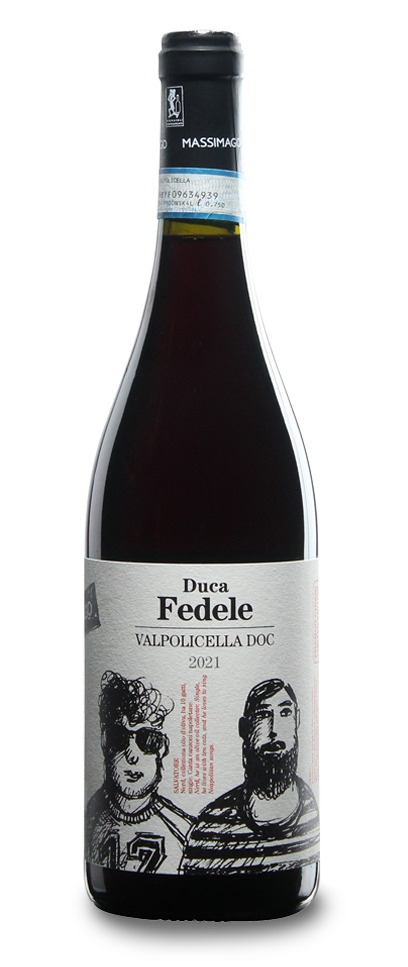Duca Fedele – Valpolicella
Uncategorized
This lighter bodied example of Valpolicella helps us transition from the lemon butter sauces of summer, to the red sauce/creamy mushroom sauces of fall. The bright red fruit keeps it refreshing, while the savory and herbal elements give it depth. This is our gaux-to Italian red for the season.
Appellation: Valpolicella DOC
Type: Red, dry.
Blend: 65% Corvina, 30% Corvinone, 5% Rondinella.
Certified Organic
Color: Bright red ruby with very clean, clear, deep rose glints.
Bouquet: A fruity aroma with hints of strawberries, cherries and a light blend of balsamic bay leaf, and white pepper on the very long finish.
Palate: Strawberry, cherry, dried herbs, vibrant and balanced acidity, combined with light tannins. A light-bodied wine that goes great with food.
Alcohol: 12.5%
Serving Temperature: Chilled 16/18° C (60°/64° F)
Pairing: Perfect for light fare or a nice balance with heavier foods. White meat, poultry, roasted chicken, veal stew, aged cheeses. Pizza, pasta, Spicy asian cuisine, Iranian stews, American BBQ, burgers, cured hams, roasted ham, and sausages.
Location: Massimago estate, Val di Mezzane valley (Eastern Valpolicella).
Soil type: Mezzane di Sotto – Limestone, clay-marly soil.
Altitude: 100–380 meters (330-1,250 feet) a.s.l.
Density: 3,500 to 5,000 plants/hectare.
Training System: Guyot
Vinification: The grapes are hand harvested and fermented immediately, without having undergone any type of drying. During the fermentation, cold maceration continues for 4 days which enhances the flavor. The wine is aged for about 6 months in steel tanks on fine lees and is then filtered and bottled. The wine is fruit driven and reflects the characteristics of the land.
Process and experimentation: Massimago limits the use of sulphites. Every year we start new experiments with the Oenology departments of the Universities of Milan and Conegliano (Padua).


